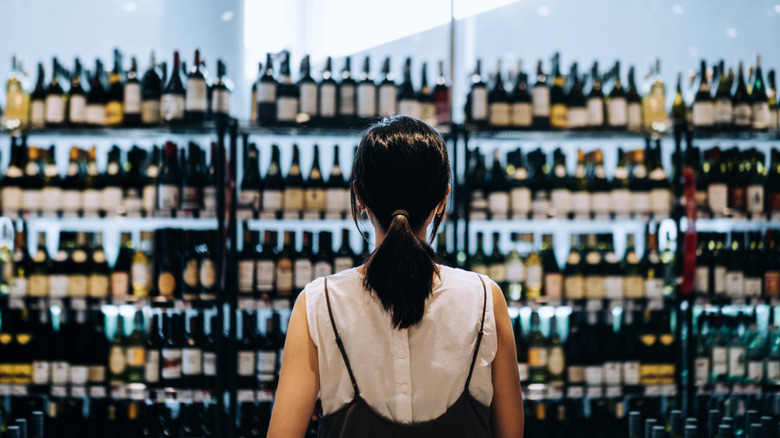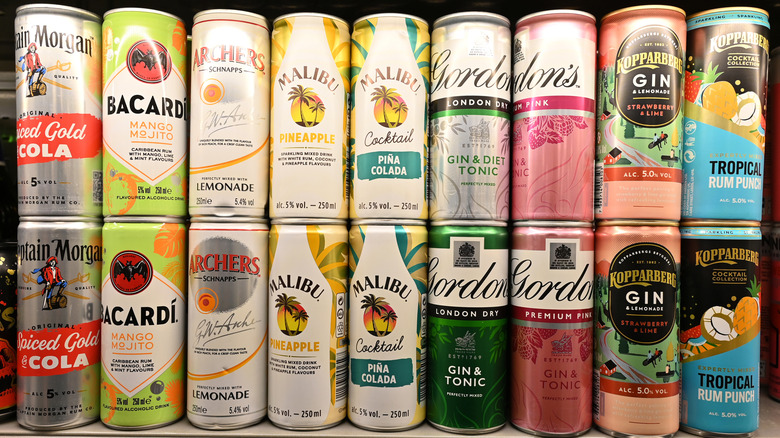The 4th Category Of Alcoholic Beverages Goes Beyond Beer, Wine, And Liquor
If you're sick of wine, beer, and liquor, you're in luck: A new type of alcoholic beverage is on the rise, and it's called ready-to-drink (RTD). You might ask, isn't beer, wine, and liquor all "ready-to-drink?" Yes, but the RTD category includes flavored alcoholic beverages that can be made from fermentation (like beer or wine) or distillation (like liquor). Make sure to check what it is you're actually drinking, though, and if you want canned cocktails with real tequila, check out our handy list.
RTDs usually take the form of seltzers or canned cocktails, but hard cider, hard kombucha, and even wine coolers all fit into this category. Yes, Twisted Tea and Mike's Hard Lemonade are also part of this category and they have been successful for a long time — Twisted Tea's sales alone grew 185% from 2016 to 2021 according to Good Beer Hunting (though our favorite hard lemonade is the surprisingly fresh Crown Royal Whisky Lemonade). RTD sales are still booming. One estimate from the National Association of Convenience Stores puts it at 63.5% sales growth through most of 2023. Having worked in wine and liquor sales for about five years, I noticed this trend, too — it was hard not to. Whole sections of wine stores in New York City are now devoted to canned cocktails and the best hard seltzers. It's hard not to like them; you can get a premium cocktail experience for a fraction of the price of a cocktail at a bar.
These canned delights help the beverage industry deal with fewer young drinkers
For some businesses, the RTD space is a new avenue for people seeking traditional flavor attributes of wine and beer but who are also looking for bold new flavors to pair with dinner or a pool party. Alcoholic beverage makers are also trying to get ahead of a problem they see coming: Newer and younger drinkers are drinking less. Gen Z especially is drinking noticeably less than previous generations. For example, one study (via Jama Network) found the rate of college students reporting that they abstained from alcoholic beverages went up from 20% in 2002 to 28% in 2018. Even younger Millennials (under the age of 35) drink less compared to older Millennials and Gen X.
No one really knows why younger generations aren't as interested in alcohol as older ones. It could be a rise in mental health awareness. Some folks put the blame on legal marijuana since people who partake in the devil's lettuce tend to drink less. But, by shifting alcoholic beverages from beer and wine to the RTD space, beverage manufacturers are trying to sell a new lifestyle to younger generations. Trend analysts typically argue that Gen Z loves the RTD space because these drinks are premium, typically lower in alcohol (easier for "mindful drinking"), and can more recognizably reflect Gen Z's socially conscious values. Whatever happens next, the RTD space is an exciting new opportunity for seasoned imbibers and newly legal drinkers alike.

